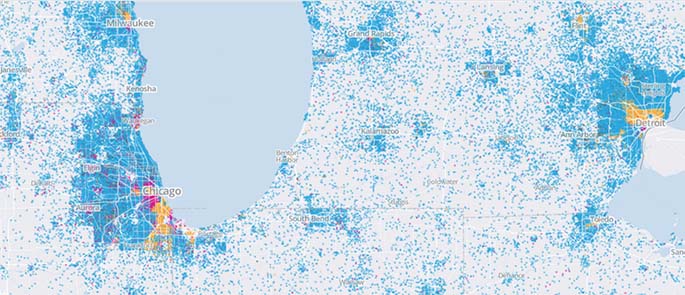
It’s been a big year for the Urban Institute’s blog. Since January, we’ve published more than 300 posts. Our bloggers have covered a diverse array of topics, ranging from data journalism to elder abuse to the “word gap.” We even had time to squeeze in a little makeover.
Expect even bigger and better changes in 2015. But before we close the book on another year, let’s reflect on our readers’ favorite blog posts of 2014.
5) Interactive map shows 12 years and more than 100 million new mortgages in 24 seconds: Bing Bai and Taz George introduced a new tool that illustrates mortgage originations by race and ethnicity throughout the United States.
4) Three trends that signal hard times for renters in 2015: More than half of households formed in the next six years will be renters, not homeowners. Ellen Seidman explained some of the challenges that these renters could face in the coming year.
3) Google can't take you to the “Dark Web,” but is it really a lurking underworld menace?: Sam Bieler and Debbie Mayer shed light on what we know—and still need to figure out—about the “Deep Web” and the “Dark Web.”
2) We’ve mapped America’s rental housing crisis: No matter where you live, there isn’t enough affordable rental housing. County by county, Graham MacDonald and Erika Poethig mapped the extent of the problem.
1) America's public schools remain highly segregated: Despite the country’s growing diversity, US public schools provide little contact between white students and students of color. Reed Jordan’s interactive map shows today’s patterns at the county level.
Tune in and subscribe today.
The Urban Institute podcast, Evidence in Action, inspires changemakers to lead with evidence and act with equity. Cohosted by Urban President Sarah Rosen Wartell and Executive Vice President Kimberlyn Leary, every episode features in-depth discussions with experts and leaders on topics ranging from how to advance equity, to designing innovative solutions that achieve community impact, to what it means to practice evidence-based leadership.
